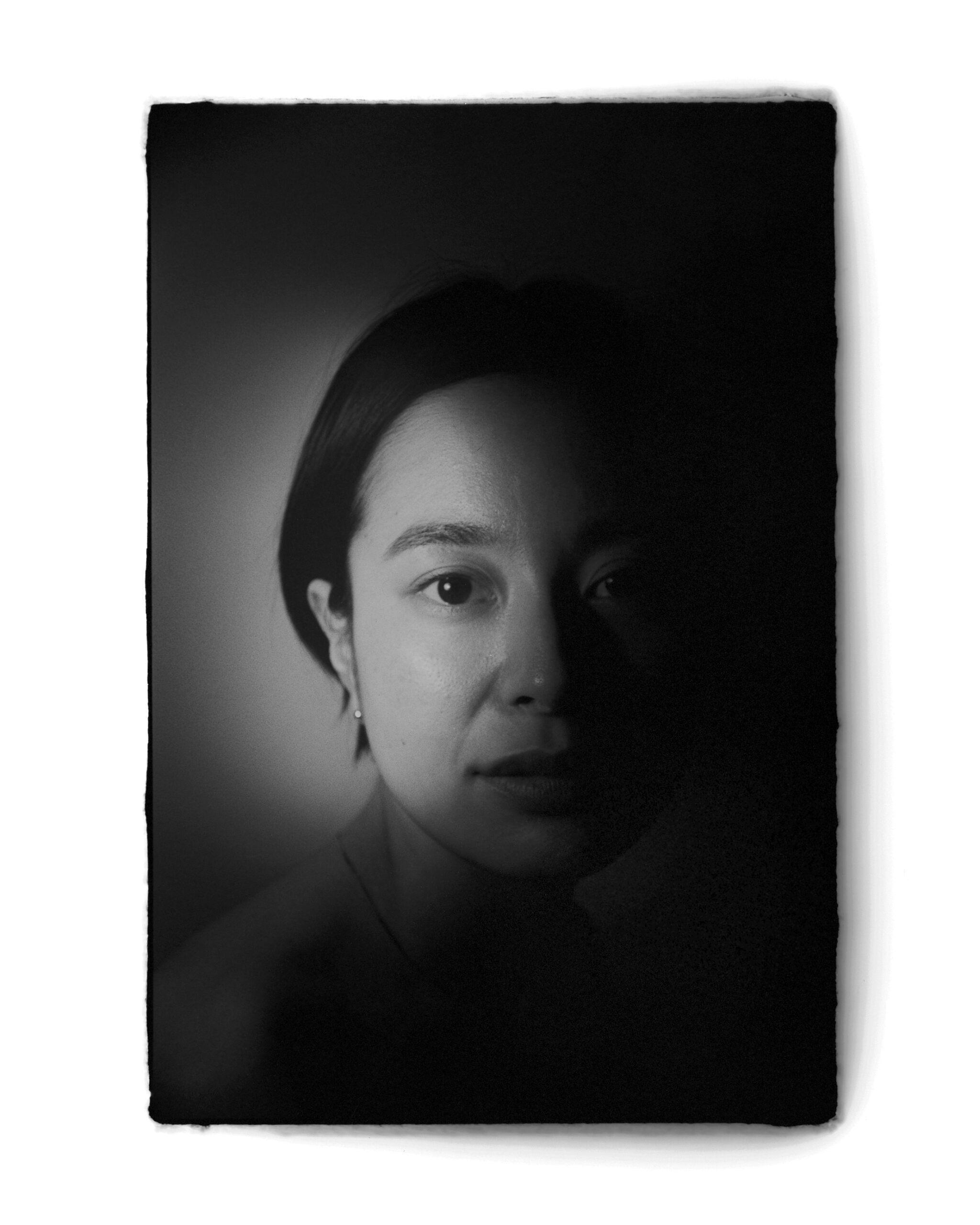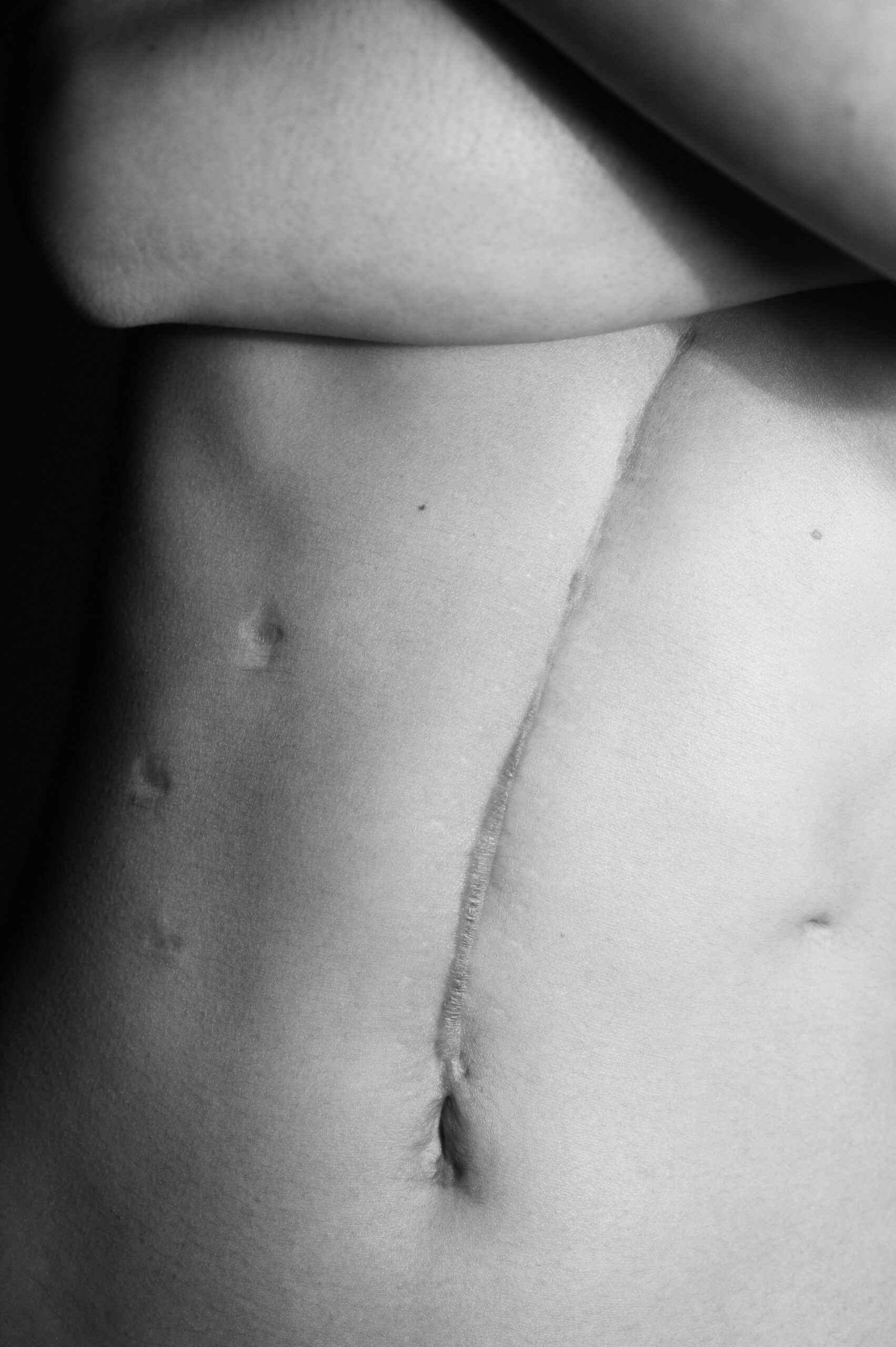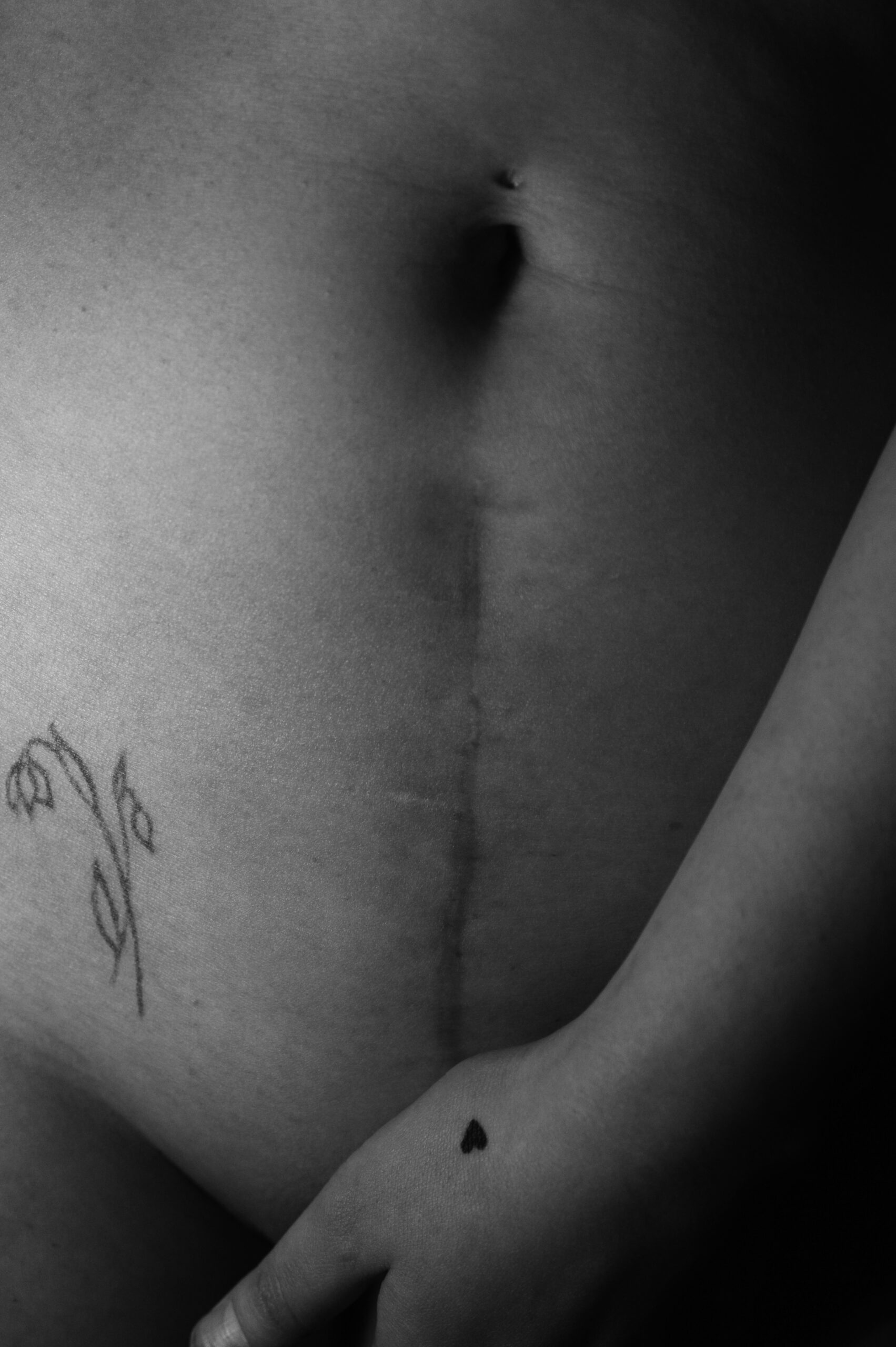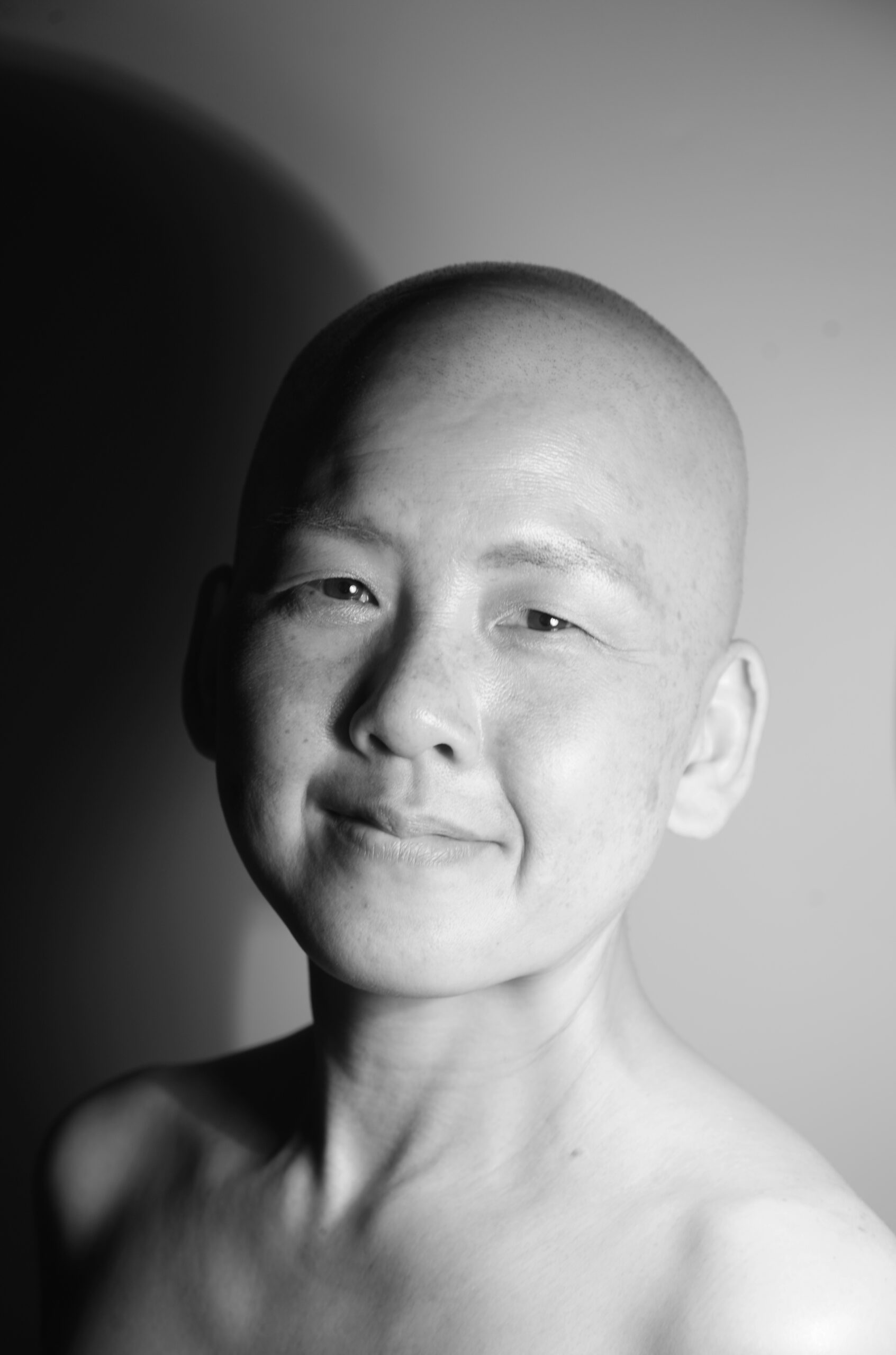
SHINING WOMAN #cancerbeauty ©︎ 2020 Hideka Tonomura
These women are defying what it means to have cancer in Japan
Hideka Tonomura's portrait series of Japanese women with cancer wants to challenge misconceptions and give back their agency.
Olive Enokido-Lineham
04 Feb 2021
Hideka Tonomura had just woken up from surgery. Following a shock diagnosis of cervical cancer in 2019 aged 39, the Japanese photographer quickly underwent a procedure to remove part of her uterus. As she regained consciousness a distinct black and white portrait of a woman – a fellow patient in her hospital – was projected into her mind. And that’s how the Shining Woman Project was born.
Cancer has been the leading cause of death in Japan since 1981 and it’s accounted for 27% of total deaths in 2018. Rates among young women are also high, as a study by two Japanese health organisations published in 2019 found that women account for 80% of cancer patients aged 20-39.
While thousands of Japanese women navigate their diagnosis, sadly many are challenged with stigma and misconceptions around the disease. Displaying itself through comments towards physical appearances and a misunderstanding of survivorship, with the assumption that a diagnosis marks the end of a woman’s life. In cases where employers fail to accommodate their health needs, some even quit their jobs altogether.
Hideka’s photograph series aims to empower Japanese women with cancer to take back agency by documenting their stories through portraits, scars and significant objects –a wig a friend made with her own hair, a wedding dress that can no longer be worn because the engagement was broken. Hoping to photograph 100 women, Hideka’s mission is to empower and encourage cancer conversations, a topic largely undiscussed in society.
“I wanted to show their radiance to the world”
Born in Kobe, a city on the southern side of Japan’s main island, Hideka began photography in 2002 having previously worked as a Kabukicho hostess. After hearing her early-stage diagnosis 17 years on, her world blacked out.
While in hospital, she was taken aback by who she met. “I witnessed empowered women who are thriving with cancer and shining with femininity. I was completely mesmerised and deeply touched with their radiance. I decided to start the project as I wanted to show their radiance to the world,” Hideka says.
Since 2019, she has travelled across Japan to the hometowns of 32 women ranging from their twenties to their fifties to capture their portraits, shooting in their homes, hotel rooms and her studio.
Whilst some women describe societal responses to their cancer as generally sympathetic, many are left to challenge misconceptions.
“We’re dealing with cancer positively and are doing well”
When one of the women Hideka photographed, Mami, was given her cervical cancer diagnosis, she thought she may only live for three or four months. In society, she finds that Japanese women with cancer are often pitied or shamed. “People feel that it’s pitiful and embarrassing that I have cancer, because they feel that if I lose my uterus, my ovaries, my breasts, and my hair, I won’t be a woman. But the way they perceive the situation only instills more anxiety and despair for people who are going to live with that,” she says.
When Mami was diagnosed someone told her that they felt sorry for her husband, because she couldn’t have children or sex. “I think it’s more important to live longer and save lives than those things, but I realised that it is something that only the person involved can understand.”
Mami often found that searching for information about cancer on the internet was difficult – that was until she came across Hideka’s project on Instagram. “When I saw how everyone looked – so beautiful and radiant even though they had cancer and had lost something – I decided that I shouldn’t give up. This was the first time I felt positive with what was going on in my life.”
She feels that cancer has taught her the importance of life and hopes for a more open society and better understanding of survivorship. “Cancer may be scary, but I’d like everyone to see that we’re dealing with cancer positively and are doing well.”
“Because of my cancer I’ve had the opportunity to live in the moment”
Chiho, who also features in the Shining Woman Project, was stunned by her breast cancer diagnosis which she learned of after being recalled from a routine medical checkup. “The diagnosis first gave me feelings of shock and resentment, followed by anxiety and loneliness,” she says. “Above all, I was able to realise the feeling of isolation to a truly unexpected level.”
After undergoing a full mastectomy, Chiho began noticing her surgical scars particularly during the pandemic and felt that she wanted to be photographed by Hideka for the project.
Like Mami, Chiho finds that patients are often pitied, with conversations seeming to focus on their diagnosis rather than other aspects of their lives. She also highlights misconceptions that the disease mainly affects older people, despite high rates among younger people, many of whom survive.
“I can say that because of my cancer I’ve had the opportunity to live in the moment and realise the pricelessness of being able to share invaluable time with other individuals who are isolated by their cancer and feel this too.”
Especially for young people when they hear the word ‘cancer’, Chiho wants them to imagine the lives of these patients beyond their diagnosis, rather than only feeling sorry for them or wondering whether or not they will die.
Chiho wants to use her experience to educate others about cancer and she’s started her quest a little closer to home, firstly with her son and daughter.
“A diagnosis is by no means a death sentence, but many people still think that”
Cancer discrimination in Japan isn’t limited to comments on physical appearance – it also emerges at work. Naomi Sakurai set up the cancer consultancy firm, Cansol, in Japan 12 years ago after being diagnosed with breast cancer in 2004. As founder and CEO she aims to improve the corporate world’s understanding of the disease through what she thinks is key to unpacking stigma – education.
Prior to her diagnosis, she worked as a chief executive of an architecture firm in Tokyo. Her schedule was hectic with long shifts, overtime and multiple business trips. After eight months off for treatment she returned to work, but experienced Lymphedema from hormone therapy. Despite her physical condition, her boss asked her to do the same hours with no flexible work. Knowing that she couldn’t sustain this, she quit.
Cansol trains cancer survivors to perform lectures to clients such as pharmaceutical companies, educating them about treatments, services and more. The firm has also been successful in lobbying the Japanese government to revise its ‘Basic Law on Cancer Control’, which ruled that employers are obligated to accommodate employees with cancer and recognised the need for social education around the disease. Before this no law existed to protect cancer patients.
Naomi explained that discrimination may disproportionately affect women as they’re more likely to work precarious contracts. She believes that stigma originates from a misunderstanding about survivorship and a cultural reluctance to discuss death.
“A diagnosis is by no means a death sentence, but many people still think that way. Their misbelief is backed up by TV-dramas, movies and novels where an unlucky cancer patient struggles with the disease and almost always ends up dying, especially women,” Naomi tells me.
“In Japan, where paternalism remains, women are required to give birth and raise children and play the role of homemaker, especially in rural areas. Therefore, if you cannot give birth due to the effects of cancer treatment, you will face various prejudices and discrimination, for example, divorce.” But she remains hopeful that change is happening.
The roots of cancer stigma in Japan are complex and cannot simply be measured or compared against Western standards of social progression. Whilst it’s no secret that progress in gender equality in Japan is slow, perhaps it’s too convenient to explain it simply without regarding the country’s history and deep ties to tradition.
“With each photo, story and lecture these women stand empowered”
Change is also happening in the public eye. The late TV personality Kobayashi Mao, documented her breast cancer journey through her blog, Kokoro (meaning ‘heart’), where she openly spoke about her treatment right up until just days before she died, aged 34. Kokoro amassed over a million readers, sparking public discussions and leading to Kobayashi’s recognition as one of the BBCs 100 women in 2016, a year before she died.
Although stigma and misconceptions around cancer still exist, these women are defying what it means to live with cancer in Japan. The high rates prove how evermore necessary education and normalising discussions about the disease are.
With each photo, story and lecture these women stand empowered and refuse to be wholly defined by their diagnosis.










